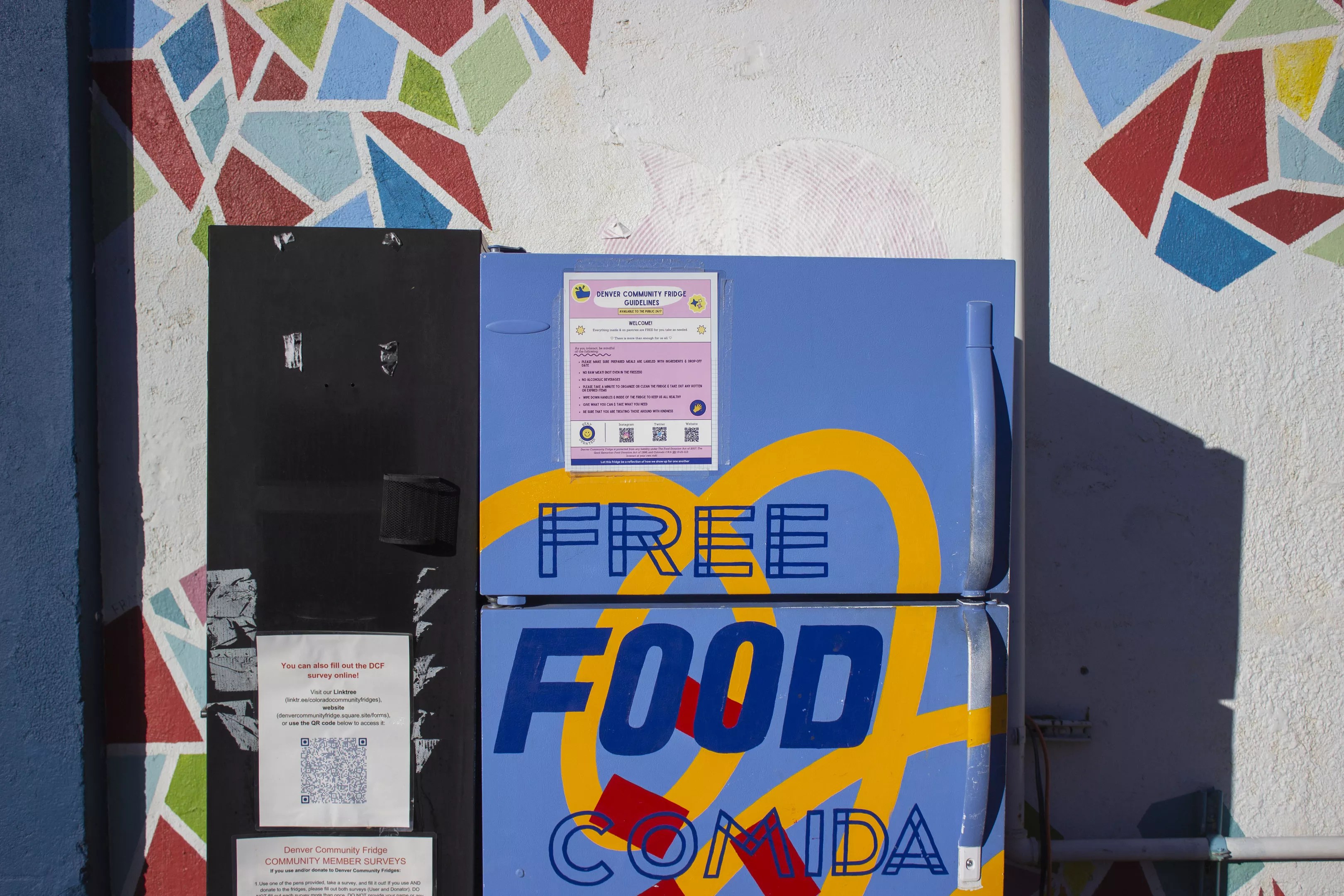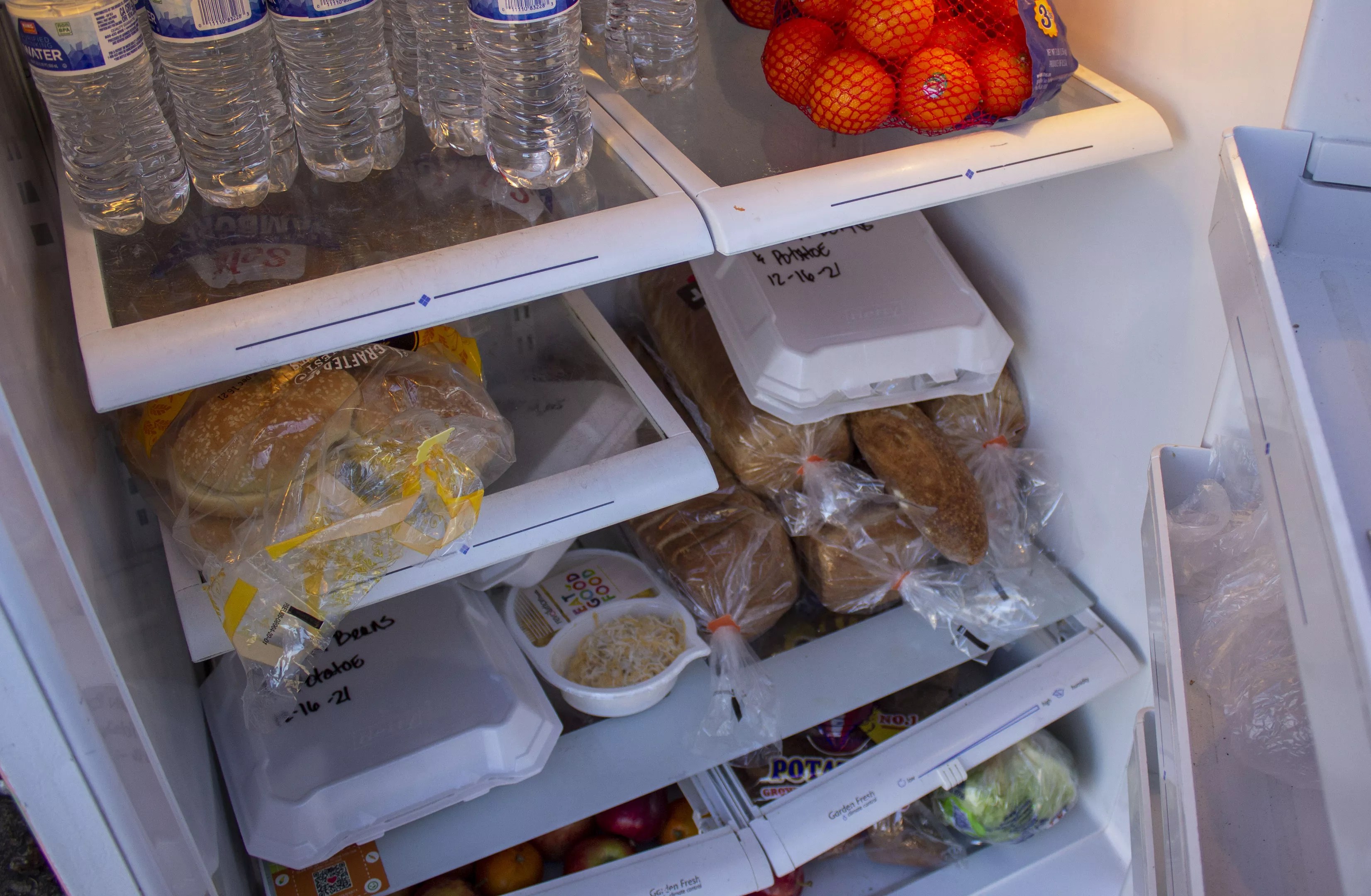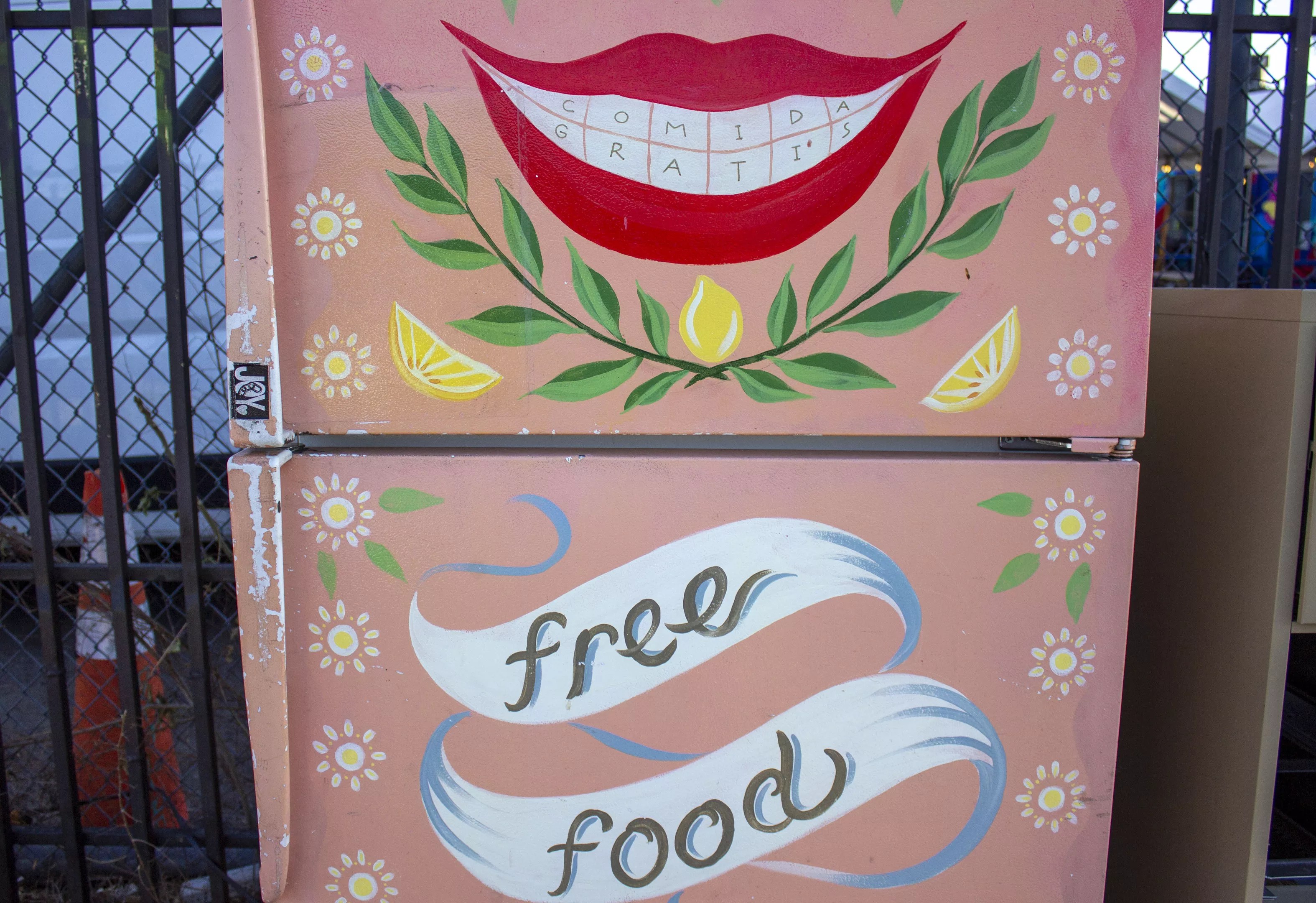
Claire Duncombe

Audio By Carbonatix
This December marks one year since Denver Community Fridges installed its first two refrigerators in publicly accessible locations where anyone in need can pick up food. The mutual aid project began with a mission to increase food accessibility, de-stigmatize seeking help and demonstrate the power of community-led initiative, and the results of DCF have been incredibly positive, say a number of the business owners who’ve hosted the outdoor fridges this past year.
In fact, they all add, they’d recommend hosting a community fridge to other businesses. They see it as one step in the right direction toward addressing the multifaceted nature of food insecurity and creating greater community involvement.
“Food insecurity is a huge, huge topic,” says Eli Zain, founder of DCF. “We’re not just talking about food. We’re talking about class, race, gender and sexuality, access to public transportation, and lack of support and access to other resources.”
The concept is simple: Businesses host brightly colored refrigerators and dry-goods pantries outside their buildings that are stocked by neighborhood residents with food such as fresh produce, canned goods and pre-packed meals or hygiene supplies. Anyone who needs those items can pick them up for free 24 hours a day.
Huckleberry Roasters, at 4301 Pecos Street in the Sunnyside neighborhood, was one of the first to host a fridge. Co-owner Koan Goedman explains that DCF reached out to the coffee shop to host, and he immediately agreed. He saw a “healthy connection [between] how Huckleberry operates and how these fridges operate: kindness and empowerment rather than shaming and making obstacles of people,” he adds.
The Huckleberry fridge is on the side of the building on West 43rd Avenue, away from the patio and with enough privacy that people can take what they need without being watched by customers sitting outside. In fact, Goedman explains, the coffee shop has very little to do with the fridge aside from providing electricity. Volunteers from DCF routinely clean and sanitize the fridge and check to make sure it’s fully stocked.

Claire Duncombe
Over at Fort Greene, at 321 East 45th Avenue, owner Eleanor Cheetham says she sees neighbors stocking the fridge almost every day. It’s even become a conversation topic inside the bar; after learning about the fridge, some customers have come back and donated. “It’s so necessary,” Cheetham explains. “We’re in Globeville. We’re in a food desert.” There’s an upscale grocery and a gas station, but little else offering healthy and affordable food. There’s also a houseless community nearby. The lack of options “is frustrating for a lot of people.”
Cheetham sees the fridges as a way to address people’s basic needs, but says that outreach and education should continue to evolve alongside the simple ways that individuals are learning to support their neighbors.
Some of those lessons involve learning about ways to help those experiencing mental health crises without involving the police.
Jim Norris, owner of Mutiny Information Cafe, at 2 South Broadway, not only welcomed hosting a fridge, but spent time learning about the city’s STAR (Support Team Assisted Response) program as a “resource that we can call when there’s a person that truly needs help,” he says. But among people using the Mutiny fridge, such mental health issues have been rare, he notes.
Even so, Mutiny’s fridge was taken down for a number of months while DCF and the community assessed the best ways to navigate supporting all who wanted to keep the fridge at that spot. DCF plans to reinstall the fridge soon, along with a shed for protection from the elements – a step that the group hopes to take at all locations.
“We’ve learned a whole lot,” Norris adds. “We’ve worked on our patience. We have to remember what’s at the core of what we’re trying to do: help our neighborhood and our community.”
Zain also lists the Harm Reduction Action Center as a resource for community members trying to assist anyone suffering from a mental health crisis.

Claire Duncombe
It’s important to know about such resources, because people experiencing food insecurity often “hold other marginalized identities; [they] often are low-income, people of color, disabled folks,” Zain explains. “It’s comforting to know that there’s a culture of not reaching out to the police, that people in their community are going to support them in a number of other ways than just having food in their bellies.”
DCF started with the intention of not only feeding the community, but also working toward decriminalizing homelessness and defunding police departments. The community fridge project is meant to be an example of a community support system that could benefit from money that’s currently used to fund the police.
But it’s just one example, and the most important blueprint DCF wants to share is that it’s “a community resource more than anything,” Zain says. It should serve as a reminder to individuals of “the agency they have” to make change happen and work toward a world where “we can keep each other safe.”
Norris noticed that many of the people who donated “felt more engaged in the community.”
“They have as much stake in it as we do,” Zain adds.
Goedman thinks the pandemic played a huge role in heightening many individuals’ awareness of the food insecurity happening around them. Many “recognized that there is a sobering amount of food insecurity that was heightened and increased by the pandemic,” he says. “But it’s not a new thing.”
In fact, he wonders whether individual donations will wane when, someday, the pandemic ends. He’s noticed that there seems to be a correlation between increased donations and COVID-19 surges.
“I think we will lose a bit of attention, because that’s just how people operate,” he says, “but we’re going to keep the fridges, and we’re going to keep it as one of the things that we do for our community.”
DCF currently operates four fridges in the Denver area, with plans to reopen the Mutiny Cafe fridge and an additional location soon. DCF is always looking for business and landlords open to hosting fridges. In order to host one, a business should have values that align with DCF’s, operate in a highly visible area of the city, have accessible sidewalks and an outdoor power source. To learn more, visit denvercommunityfridges.com or follow the organization on Instagram.